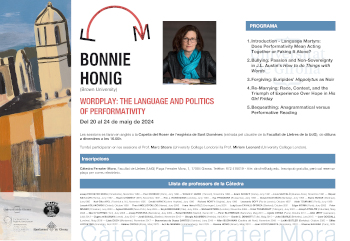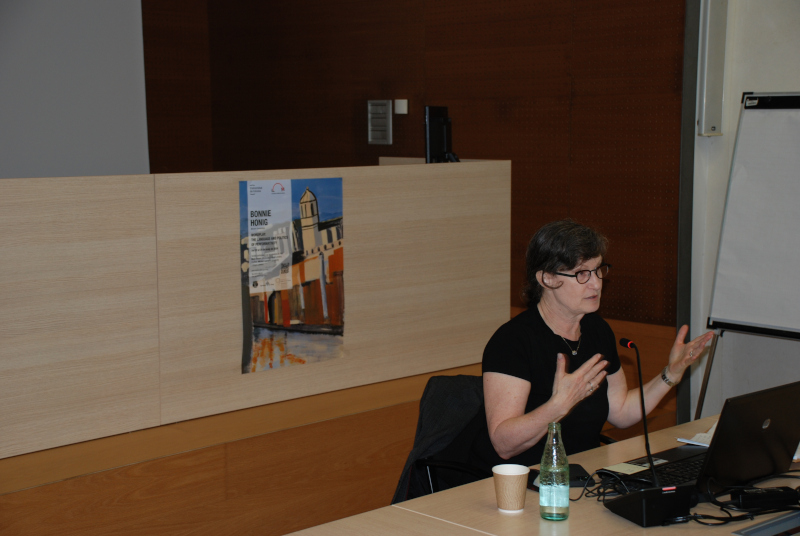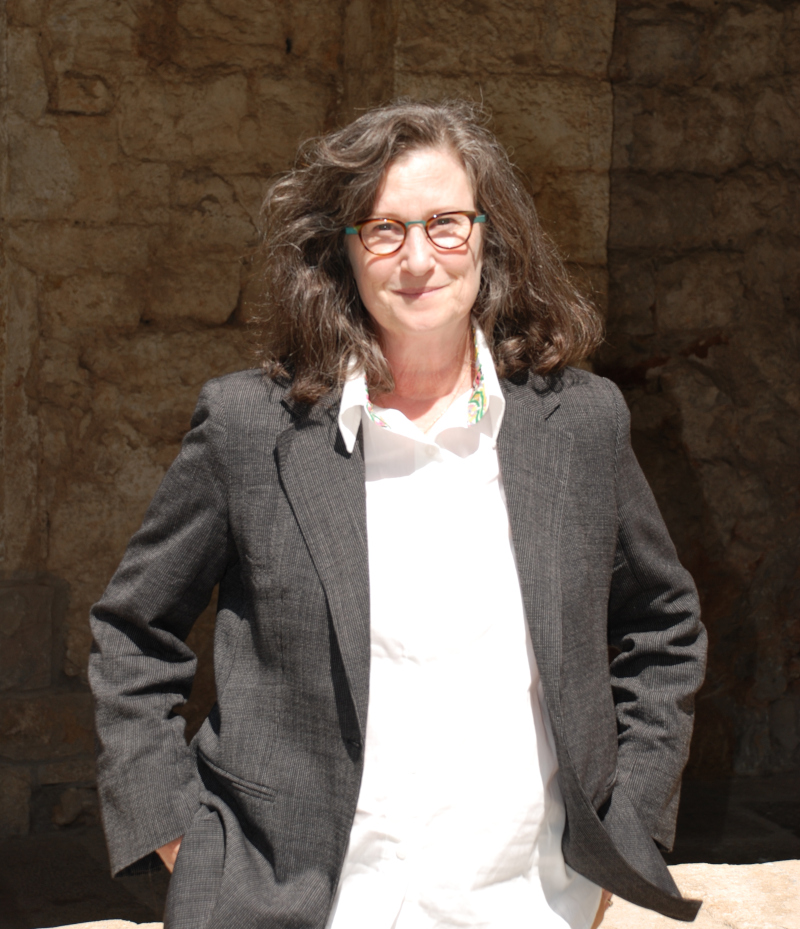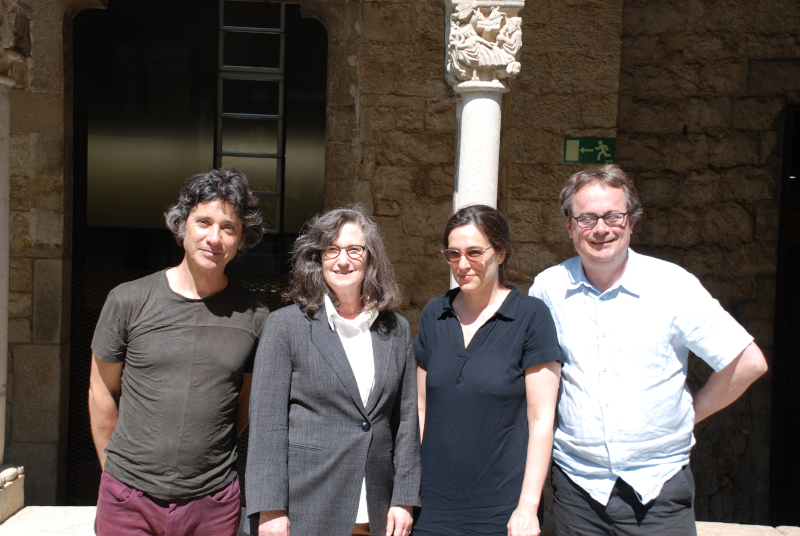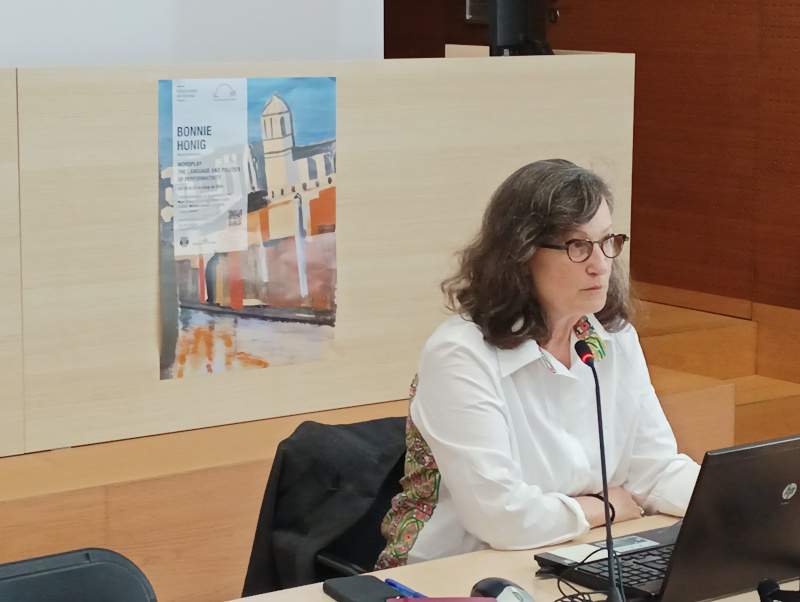
Bonnie Honig
Bonnie Honig is Nancy Duke Lewis Professor of Modern Culture and Media (MCM) and Political Science at Brown University, and (by courtesy) Religious Studies (RS) and Theater and Performance Studies (TAPS). Prof. Honig works in political, feminist and queer theory, immigration policy, as well as film, classical, literary, legal and cultural studies.
She is author of several books, including: Political Theory and the Displacement of Politics (Cornell, 1993, Scripps Prize for best first book, reissued in 30th annversary edition, Cornell, 2023), Democracy and the Foreigner (Princeton, 2001), Emergency Politics: Paradox, Law, Democracy (Princeton, 2009, David Easton Prize), Antigone, Interrupted (Cambridge University Press, 2013), Public Things: Democracy in Disrepair (Fordham, 2017), A Feminist Theory of Refusal (Harvard, 2021) and Shell Shocked: Feminist Criticism After Trump (Fordham, 2021: a collection of revised versions of her public writing since 2016).
Programme
WORDPLAY: THE LANGUAGE AND POLITICS OF
PERFORMATIVITY
From 20 to 24 May 2024
(Click here to download the programme in pdf)
Guest Lecturer:: BONNIE HONIG
(Brown University)
- Introduction - Language Martyrs: Does Performativity Mean Acting Together or Faking It Alone?
- Bullying: Passion and Non-Sovereignty in J.L. Austin’s How to do Things with Words
- Forgiving: Euripides’ Hippolytus as Noir
- Re-Marrying: Race, Context, and the Triumph of Experience Over Hope in His Girl Friday
- Bequeathing: Anagrammatical versus Performative Reading
Topic of the lessons
These lectures revisit JL Austin’s midcentury philosophy of language in connection with the sexual and/or racial politics of performativity. With a new reading of How To Do Things with Words, and drawing also on Wittgenstein’s Philosophical Investigations, Austin’s ordinary language philosophy of performativity is reconsidered and repurposed in conversation with democratic theory, feminist theory, queer theory, black studies, Jewish studies, and film studies. Performativity, which once meant the power to begin something new in words, has come to mean inauthentic or insincere action. How might political theory reclaim the inaugural powers of speech and action, thinking with and beyond J.L. Austin, his readers, and his critics? Drawing on the work of Hannah Arendt, Hortense Spillers, Eve Sedgwick, Judith Butler, Christina Sharpe, Stanley Cavell, Jacques Derrida, and Sara Ahmed, I begin the work of reclamation with performatives Austin did not theorize, including bullying, forgiving, and remarrying, and a final one he mentioned but did not explore in depth: bequeathing. Membership and belonging, non-normative futurism, queer inheritance, black dispossession, and a politics of joyous reclamation and play are at the core of this return to Austin.
Recommended literary and audiovisual references for the lectures:
- Euripides’ Hippolytus
- Leave her to Heaven (dir. John Stahl 1945)
- His Girl Friday (dir. Howard Hawks, 1940)
- La Haine (dir.Mathieu Kassovitz, 1995)
Invited specialists
Will also participate in the sessions Prof. Marc Stears (University College London) and Prof. Miriam Leonard (University College London), all two specialists on Bonnie Honig’ work and invited to participate in the seminar as he requested himself.
Marc Stears is an internationally regarded academic, political strategist, speechwriter and executive educator, who specialises in creating dynamic collaborations between academic researchers and broader society. Currently the inaugural Director of the UCL Policy Lab, Marc has previously been Director of the Sydney Policy Lab at the University of Sydney, CEO of the New Economics Foundation, Professor of political theory at the University of Oxford and chief speechwriter to the UK Labour Party. He enjoys a worldwide reputation as a leadership coach and communications strategist, having supported Board and Executive Committee members for major organisations including for some of the world’s largest companies. He is the author of several books from the world’s leading presses, including Out of the Ordinary published by Harvard University Press in 2021. Along with his co-author Tom Baldwin, he has just completed a new book entitled England: Seven Myths that Changed a Nation and How to Set them Straight, due out from Bloomsbury in 2024.
Miriam Leonard was a Prof. for six years in the Bristol Classics department. He joined the UCL department in September 2007 and has been a visiting scholar at Duke and Stanford. He has received a Philip Leverhulme Award.
His research explores the intellectual history of the classics in modern European thought from the 18th century to the present day. It examines how an engagement with the classical past has given rise to a particular understanding of modernity.
She was curator of the exhibition ‘Between Oedipus and the Sphinx: Freud an Egypt’ at the Freud Museum in London.
Press Releases
Read here the article by Joan Vergés “El perdó segons Bonnie Honig” (“Forgiveness according to Bonnie Honig”), published in Núvol on June 6, 2024.


